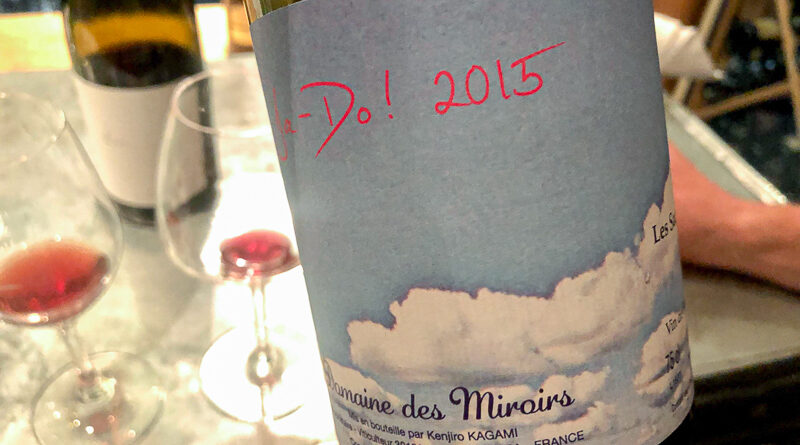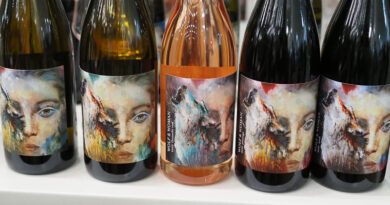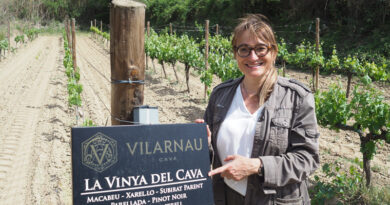Does a producer have any rights to their wines, once they have sold them?
I recently wrote a piece for Little Wine about the grey market for wine, and how this has started to impact the natural wine world. [I should add, though, that while article specifically referred to natural wine, it could also refer to any small-production artisanal wine.]
‘Grey market’ refers to the distribution of wines outside their normal channels. Some prefer to call it the secondary market. Recently, some of the most highly revered natural wines have appeared on this secondary market at vastly inflated prices.
I gave the example of Domaine des Miroirs, the Jura producer. Fine Wine Merchant Berry Bros & Rudd have listed a bunch of these wines at £600 a bottle. The UK agent sells them to the trade at around £30 a bottle. Berry Bros & Rudd didn’t get these wines from the UK agent, but via a third party.
The responses to the piece were predictable. As well as widespread agreement from people who understand natural wine, others pointed out that they though the market was the best and fairest way to decide prices, and that it was a good thing for the producer if their wine was worth more.
Some producers, though, don’t want their wines to be traded as a commodity. They don’t want the market to decide a price for them. They want their wines to be drunk and enjoyed by people who will ‘get’ them. [I can hear half my audience shouting at the screen right now – this is so pious! Who decides who is the right person to ‘get’ the wine?]
A producer might spend years working unheralded, selling their wines to a customer base they have built up for many years, and making enough money that their business is sustainable financially, and they have more than they need to live on. Now, suddenly, their wines become famous and some leak onto the secondary market at 20 times the price they are normally sold for. Is a producer going to be thrilled by this? No: the fame causes as many problems as you think it would solve.
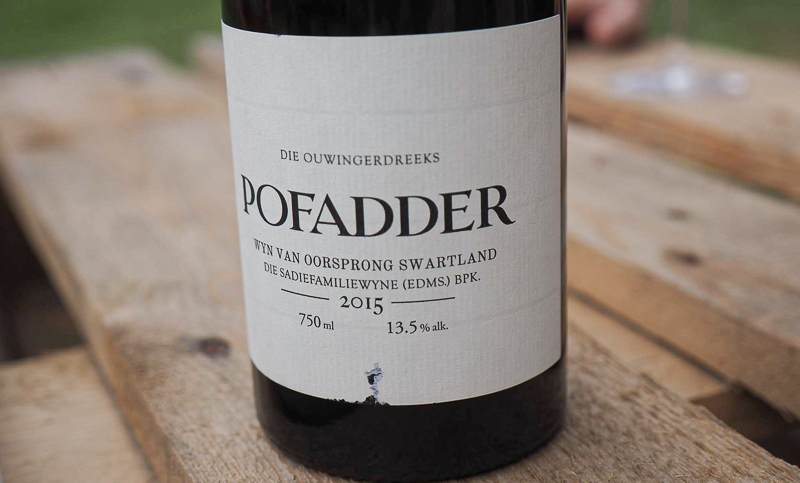
I was recently tasting with Eben Sadie. Eben’s wines are in such demand that they sell in one day. ‘When people don’t get what they want, they actually become quite vindictive, so you have to manage this,’ he says. ‘What we do is release the wines the last Monday in July.’ The orders come in and by 0845 the wine is sold out. This massive popularity creates a culture where people drink them incredibly young, he says, and they even disappear quickly from restaurant lists. So Eben is sending more wine to retail, and stipulates that they can’t sell more than three bottles to any one customer. ‘Our two biggest customers in the world are Broadbent and FMV,’ he says. ‘Both get 8% of our production. Our next biggest customer gets 4%.’
And I remember a visit to Wendouree in the Clare Valley, back in 2005 (link here). Tony Brady makes some of Australia’s most sought after wines, all sold by a mailing list. Tony showed me his box file – back then it was all on paper, and I suspect it still is. This contained lists of all his customers, and their allocations. He policed this list carefully. If you wanted to join, you had to wait your turn – it didn’t matter who you were.
And another example. Each year, Corney & Barrow give a tasting of the new vintage wines from Domaine de la Romanée Conti, which they have exclusivity on in the UK. These are some of the most famous wines in the world, and even though they are expensive on release, the market value is far higher. It is to the great credit of the Domaine and Corney & Barrow that they don’t simply raise prices to the maximum level they can get. Instead, they take great care to allocate wines with a focus on ‘the private customer and as a consumer rather than a speculator’. Anxious not to create a grey market for these wines, the bottle numbers are recorded with each sale, and customers are asked to give Corney & Barrow first refusal if they should need to sell their wines in the future. They also keep a small number of bottles for new customers – this is with a view to the future.
But this got me thinking. Once a wine has left the cellar of a producer, does the producer have any right to care about what happens to the wine? If you buy a wine from a producer with a strong moral imperative, should you show respect to the wishes of the producer, or is it entirely your wine to do what you do with it? Are producers right in trying to control who drinks their wines?
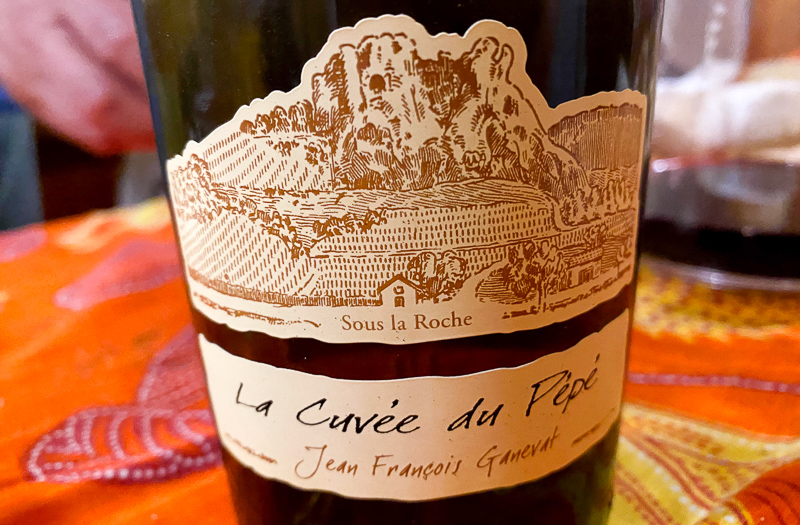
A lot of it depends on your attitude towards wine. Many of us feel a sense of reverence for special vineyard sites, and the people who then try to interpret them through their winegrowing. For people like me, drinking a great wine is a transformative experience. There’s a beauty to great wine, and one of the reasons I’m attracted to natural/authentic wines is because you often get these spine-tingling moments when you taste something and realise it is special, and it transports you to a place and time. This leads you to respect the wine, and the people behind it.
Technically, if you have brought a bottle of wine, it’s yours to do what you want with. But I believe that winegrowers do have some sort of right over the bottle they have made, even if it’s clearly not a legal one. It’s a spiritual right, if you like. I want to be respectful of the person who has made the wine, and me treating it like a commodity and reselling it for my profit doesn’t feel right. I’m not saying it is morally wrong to re-sell wine. Just that with an authentic/natural wine, it’s not respectful. Would it be wrong to take a bottle of Ganevat and pour it on the ground? I would say, yes, this is disrespectful, and also it’s morally wrong to waste anything in this way. No one is harmed, no laws are broken, but it says something about you.
The TV series Westworld raises some interesting philosophical issues. It’s based in a theme park of the future, where guests head to a remarkable recreation of the wild west with astonishingly realistic AI hosts. Guests can’t be harmed, and they pay considerable sums for the pleasure of being immersed in this world. There’s a lot of sex and violence, and it’s quite brutal. But, is it morally wrong to mistreat a robot? In a piece in the New York Times, Paul Bloom and Sam Harris pose this question: what’s wrong with cruelty to robots?
Anything that looks and acts like the hosts on “Westworld” will appear conscious to us, whether or not we understand how consciousness emerges in physical systems …
Kant had odd views about animals, seeing them as mere things, devoid of moral value, but he insisted on their proper treatment because of the implications for how we treat one another: “For he who is cruel to animals becomes hard also in his dealings with men.” We could surely say the same for the treatment of lifelike robots. Even if we could be certain that they weren’t conscious and couldn’t really suffer, their torture would very likely harm the torturer and, ultimately, the other people in his life …
For the first time in our history, then, we run the risk of building machines that only monsters would use as they please.
Paul Bloom, Sam Harris, New York Times
It’s a long way from bottles of natural wine to realistic Westworld AI hosts. But the point is that the way we behave towards something like a bottle of wine says something about us. Some wines fit the fine wine secondary market well. It’s part of the ethos of classed growth Châteaux in the Médoc: people buy these wines en primeur and then trade them. They are made in reasonable quantities in technical wineries by winemakers who wear suits. Well, I exaggerate a little here. Bordeaux is great, of course, and I love drinking old well-cellared claret. But the culture is different.
Artisanal winegrowers who don’t want to be part of this culture should be respected. Many, I am sure, are just happy to sell their wines. Others have a different view about their bottles. They would rather they are not traded as commodities. If we buy their wines, I believe we should show respect for their wishes. I understand that this will be a controversial position, but wine is something that has the capacity to be life-enhancing and transformative. It is inherently social, and it is cultural. The fine wine market, endlessly trading bottles that sit in temperature controlled warehouses and which are hardly ever drunk, really seems at odds with this. The natural wine scene is counter-cultural and in part rejects this side of the wine market, and so it’s bizarre to see it being sucked into the secondary market. These wine simply don’t fit there, and this won’t end well.

